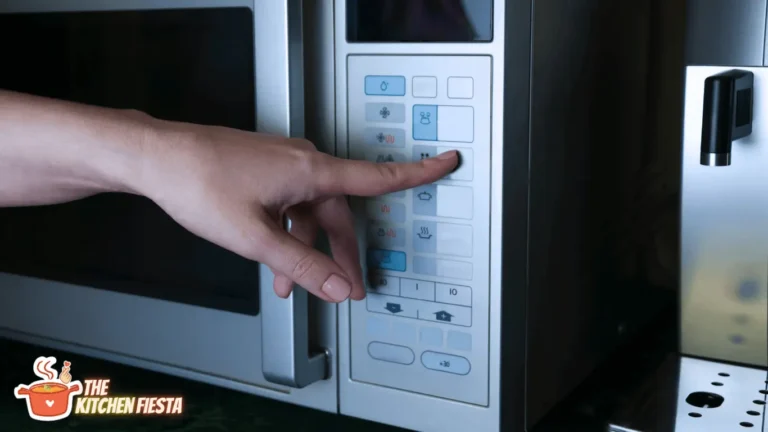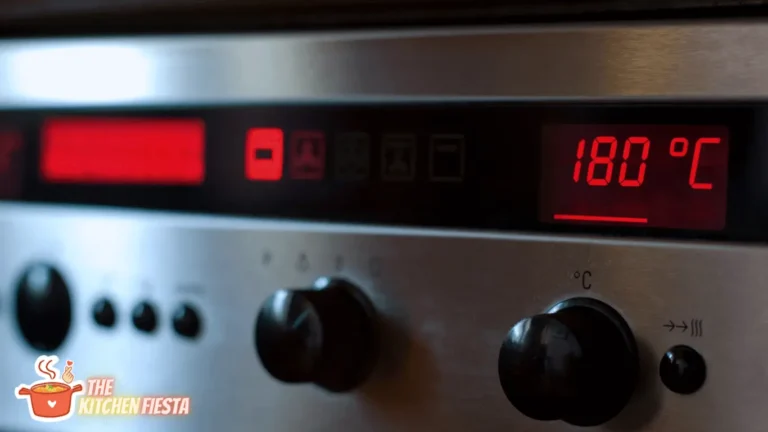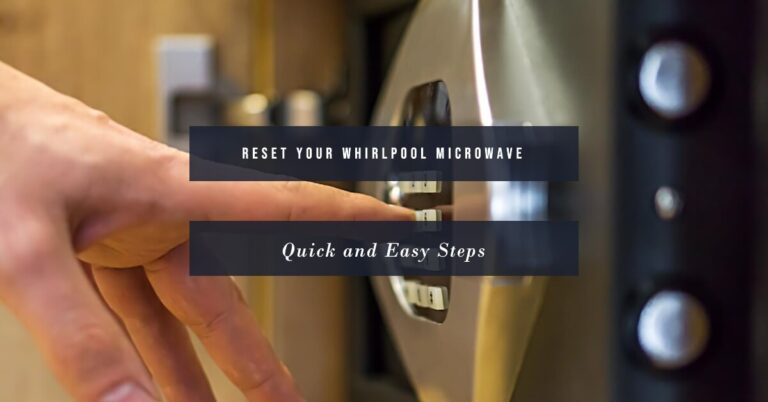Who Repairs your Microwave Ovens? Must read!!
The familiar hum of the microwave oven as it heats up leftovers or pops popcorn is such a staple sound in most kitchens. But when you notice your microwave suddenly stops heating food properly, that convenience quickly disappears.
So what causes common microwave oven problems like lack of heat, uneven cooking or interior sparking? And is professional microwave repair worth the cost compared to just replacing your aging or faulty unit?
In this detailed guide, we’ll cover:
- The most frequent microwave faults homeowners encounter
- Diagnosing whether your appliance needs repair or replacement
- Steps involved in professional microwave oven repair service
- Estimated costs to fix various microwave issues
- How to find the best microwave repair technicians in your area
- Key factors when deciding between repair or buying a new microwave oven
By the end, you’ll have a better understanding of how your microwave works, what can go wrong, if and when repairing it makes financial sense, and who to call to properly get your unit heating food again.
Common Problems With Microwave Ovens
Microwave ovens use high-frequency electromagnetic waves to quickly vibrate water molecules in food, producing heat. This heats and cooks food much faster than conventional ovens.
This speed and convenience comes at a price however – microwave ovens rely on complex electrical components to generate their heating capability. And over time, frequent use can cause certain parts to fail.
Here are some of the most common issues homeowners encounter with their microwave ovens:
Microwave Won’t Turn On
If your microwave won’t power on at all, the issue likely lies with the electrical supply components. Some possibilities:
- Faulty door switch – This interlock switch prevents the microwave from running when the door is open. If defective, the oven won’t turn on.
- Bad diode – The diode converts incoming AC electricity to DC power needed for the control board. If it fails, the unit won’t start.
- Tripped fuse or breaker – Check your home’s electrical service panel for a flipped fuse or circuit breaker.
- Keypad failure – If the touchpad membrane is damaged, it can’t transmit input to start the microwave.
- Faulty control board – The main control board coordinates electrical signals. If it’s defective, the oven won’t start up.
Microwave Has No Power or Doesn’t Heat
If the microwave powers on but fails to heat up food, there could be an electrical or heating component failure:
- Burnt out magnetron – This tube converts electricity into microwave energy. If it fails, the oven won’t heat.
- Damaged stirrer fan – The fan spreads microwaves through the oven for even cooking. If broken, heating is uneven.
- Failed high voltage capacitor – The capacitor delivers power spikes to the magnetron. If defective, the magnetron won’t receive adequate power.
- Damaged door seal – A faulty door seal allows microwave energy to leak out rather than cooking food.
Microwave Fails to Turn or Rotate
Microwave turntables rotate food to promote uniform exposure to microwave energy. If this turning mechanism fails, food won’t cook evenly. Issues include:
- Faulty turntable motor – This electric motor powers the turntable rotation. If defective, the turntable stops moving.
- Broken turntable support or rollers – The turntable should rotate smoothly on these components. If damaged, turning stops.
- Blocked turntable – Debris or an object stuck under the turntable can obstruct normal rotation.
Sparking Inside Microwave Oven
Seeing electrical arcing or sparking inside your microwave can be alarming. This indicates a serious electrical malfunction that should be addressed immediately. Potential causes include:
- Holes or gaps in oven cavity – Degraded metal surfaces allow microwave energy to arc to components.
- Damaged or leaking magnetron – If the magnetron leaks current, this can arc and spark.
- Faulty high voltage components – The capacitor, diode or other parts could be overcharged and shorting.
- Foreign object – Metal objects like foil or utensils can cause dangerous sparking.
Should You Repair or Replace Your Faulty Microwave?
When your microwave oven starts malfunctioning, an important question is whether to repair it or simply replace the unit. There are several factors to weigh in this decision:
Age of the Microwave
Older microwaves tend to require more frequent repairs as internal components wear out over years of use. If your unit is more than 10 years old, replacement may make more financial sense than investing money in repairs.
Cost of Repairs
Obtaining an estimate from a qualified appliance repair technician is the best way to determine potential repair costs. Minor fixes like replacing a door switch may be inexpensive. But repairs for major components like the magnetron can approach the cost of a brand new microwave.
Availability of Replacement Parts
One downside of repairing older microwave oven models is that replacement parts can be difficult to source. Unusual or discontinued parts for vintage units may be obsolete, forcing repair costs upward.
Reliability and Lifespan
If your microwave has needed frequent repairs, it may indicate general unreliability or the end of its operational lifespan. Purchasing a brand new unit can provide years of reliable service versus sinking more money into an aging appliance.
In general, newer microwaves less than 5-8 years old are usually good candidates for repair when issues pop up. But for older units, replacement often makes better financial sense.
Who Can Professionally Repair Your Microwave?
When you confirm your faulty microwave requires professional service, who makes the best option to call for repairs? Here are the main choices:
Independent Appliance Repair Technicians
Searching for “microwave repair near me” will find local independent technicians and shops advertising microwave oven repair services. Look for an experienced technician familiar with all major brands.
Manufacturer Authorized Service Networks
Major brands like GE, Whirlpool, Samsung, etc. have networks of authorized repair centres with technicians trained specifically for that brand. They have direct access to official replacement parts too.
Appliance Repair Chains
National appliance repair chains like Mr. Appliance or Puls dispatch local technicians for service calls. Their staff receives general appliance repair training. Quality can vary between franchises.
Handyman Services
Some independent handymen offer appliance repair services. For microwave ovens, it’s best to verify the handyman is qualified to work safely on complex 220-volt electrical appliances before hiring.
When selecting a microwave repair provider, check their customer reviews and reputation online. Confirm they have extensive experience, proper licensing, and employ qualified technicians.
What to Expect During Microwave Repair Service Calls
Once you’ve contracted a reputable appliance repair provider to fix your faulty microwave oven, here is the general service process:
Initial Diagnostic Examination
The repair technician will first perform a visual inspection of your microwave inside and out. They will ask you to demonstrate the problem while observing. Simple diagnostic tests help isolate the issue.
Estimate for Total Repair Cost
Before proceeding with repairs, the technician should provide a written estimate for total costs including:
- Service fee for diagnostics and labour
- Cost of any replacement parts needed
- Applicable taxes
Ask if there are discounts for seniors, military members or bundled appliance repairs.
Microwave Component Testing
To pinpoint faults, the technician may disconnect components and use tools like multimeters to diagnose issues. Common checks include the magnetron, high voltage capacitor, fuse, control board and connectors.
Repair and Part Replacement
Once the root cause is found, the technician will disassemble the microwave and replace any defective parts with new components. Parts may need ordered if not in the tech’s inventory.
Final Testing and Verification
Before wrapping up, the repair shop should thoroughly test your microwave to verify it is heating properly again. Some issues require a follow-up appointment if awaiting part shipments.
How Much Does Professional Microwave Repair Cost?
Costs for microwave oven repair can range widely depending on the specific issue, technician rates, and your geographic area. Here are some typical costs:
- $100-$150 – For minor repairs like replacing a faulty door switch, fuse or controller panel.
- $150-$250 – To replace larger components like the magnetron, capacitor or motor.
- $200-$300 – For extensive repairs involving multiple parts replacements or structural issues.
- $60-$80 – Typical service fee for diagnostics before parts/labour.
A new microwave can cost $200 and up depending on features. So extensive repairs on older units may approach the cost of replacement.
Common Microwave Repair Questions
Here are some frequently asked questions and answers about microwave oven repair services:
Can I repair a microwave oven myself?
Due to the risk of severe electrical shock, microwave repair is recommended for experienced technicians only. Proper training and tools are essential when working with high voltage components.
How long does a microwave repair take?
Most straightforward repairs take 1-2 hours to diagnose, replace parts, and test the unit. More complex issues requiring special order parts can take several days or multiple visits to resolve.
Is it worth fixing an older microwave?
Microwaves over 10 years old are generally not worth repairing, as the lifespan is ending and repairs approach replacement cost. Newer models are usually worth fixing.
Does my microwave need periodic maintenance?
You don’t need to periodically service a working microwave. But schedule repairs immediately if you notice problems heating, turning or strange noises that indicate an issue.
Can I just replace the magnetron myself?
While a magnetron replacement may seem simple, it requires discharging high voltage components safely. It’s highly advisable to have a professional complete the repair.
Signs Your Microwave May Need Repair Service
To maximize the lifespan of your microwave oven, it’s important to periodically inspect it and watch for common indicators of issues developing. Be alert for problems like:
- Uneven heating or cold spots when cooking food
- Food taking much longer than normal to heat up
- Microwave failing to start when pressing buttons
- Loud humming or buzzing noises from the magnetron
- Rotating turntable suddenly stopping mid-cycle
- Unusual burning or electrical smells
- Visible interior damage like cracks, peeling or holes
Addressing small problems early before they worsen can often restore full functionality with quick repairs. Ignoring issues allows more extensive damage to occur over time.
Ensure Proper Microwave Function
To verify your microwave oven is operating correctly after repairs, run through this checklist:
- Heat a cup of water – It should reach boiling in under 2 minutes.
- Verify even heating – Rotate food and check for cold spots while cooking.
- Open door while running – Microwave should immediately stop heating.
- Inspect interior surfaces – No sparking or arcing should occur while operating.
- Listen for odd noises – Make sure the hum or buzz sounds normal.
- Check the turntable rotates smoothly.
Monitoring these indicators of proper microwave operation allows you to catch any emerging problems early before small issues snowball into major component failures requiring extensive repairs.
Do Microwaves Need Yearly Maintenance?
Unlike some other appliances like furnaces or air conditioners, you generally don’t need periodic servicing or maintenance on a fully-functional microwave oven to preserve lifespan and performance.
However, occasional cleaning is recommended:
- Wipe down surfaces – Use a damp cloth and mild detergent to clean the interior, exterior, door and controls. Avoid abrasive scouring pads.
- Check vent screens – Vents along the top or rear keep components cool. Clean dust and debris away.
- Inspect turntable – Remove built-up food and spills under the rotating glass tray.
- Degrease surfaces – Built-up cooking splatters can be sanitized with microwave-safe degreasers.
These simple microwave cleaning maintenance steps prevent grease and dirt accumulation that can more easily damage parts over time.
Warning Signs of Failing Microwave Components
Watch for these common red flags that signal microwave parts may be wearing out and prone to failure:
- Uneven cooking – The stirrer fan spreads microwaves. If airflow is blocked, cooking may be uneven.
- Dim oven light – A failing interior bulb indicates overall aging. Other parts may be deteriorating too.
- Humming or buzzing – Unusual magnetron noises can mean the diode, capacitor or magnetron itself are struggling.
- Weak door latch – If the latch allows the door to fall open, a new interlock switch is needed.
- Slow heating times – Gradually longer heating is a classic sign of magnetron failure.
- Burnt smell – Unusual burning odors mean microwave components are overheating.
Addressing these warning signs promptly reduces the chance of avoidable food spoilage, fires or extensive damage from component failure.
Is DIY Microwave Repair Possible?
With the prevalence of online tutorial videos and parts suppliers, some homeowners consider attempting do-it-yourself microwave repairs to save money over hiring a professional.
However, this is strongly discouraged for safety reasons. Microwave ovens contain lethal voltage levels that can easily kill if mishandled.
Proper microwave repair requires specialized skills like:
- Safely discharging and isolating high voltage capacitors and magnetron
- Measuring electrical resistance and continuity to pinpoint faults
- Matching replacement parts like magnetrons to your model
- Reassembling the oven to ensure no microwave leakage
Unless you have professional appliance repair training, microwave service is best left to qualified experts. Improper repairs can result in dangerous failures down the road.
Compare Repair Cost vs New Microwave Purchase
When facing an expensive repair quote for your malfunctioning microwave oven, it’s smart to compare costs to simply purchasing a quality new unit.
Factors to consider in this comparison:
- New microwave prices – Basic models start under $100. Feature-packed units run $250+.
- Repair costs – Estimate parts and service costs. Complex fixes near $250+.
- Age of current model – New units often make more sense for microwaves over 8-10 years old.
- Availability of parts – Repairs are difficult if compatible parts are obsolete.
- Added features – Newer microwaves boast useful advances like inverter technology, smart diagnostics and connectivity.
Weigh your repair/replace options carefully before deciding. An affordable repair can sometimes prolong the life of a microwave you’re otherwise satisfied with.
Key Microwave Repair Takeaways
To summarize, key points to remember about diagnosing and repairing malfunctioning microwave oven problems:
- Common faults involve the electrical components like the diode, magnetron and control board.
- Carefully inspect your microwave to determine if repair or replacement makes better financial sense.
- Qualified appliance technicians have proper training and tools to safely perform microwave repairs.
- Service involves diagnostic testing, part replacements and performance verification.
- Minor issues may cost $100-$150 to repair while major repairs can reach $250+.
- DIY microwave repair is dangerous due to lethal electrical voltage.
- Watch for problems like uneven cooking or sparking that indicate the need for professional service.
Don’t resign yourself to eating cold leftovers or abandoning your microwave just because it stops heating properly. In most cases, repairs by a trained appliance technician can get your unit functioning like normal again at a reasonable cost.






